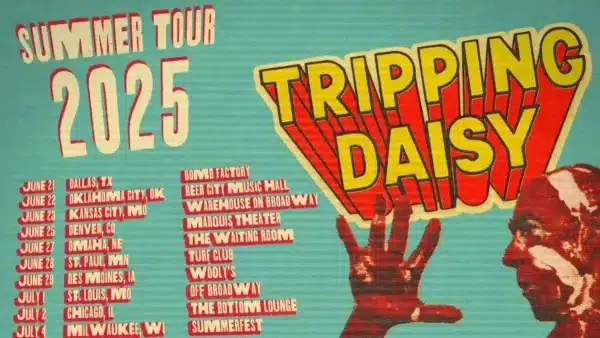
Lady Gaga The Mayhem Ball tour dates were announced Wednesday morning. (Graphic via Lady Gaga on X)
Australian Pols Scrutinize Dynamic Ticket Pricing Amid Lady Gaga Outcry
Australia’s Labor government says it is pressing ahead with plans to outlaw “dynamic pricing,” hidden fees and other so‑called “drip‑pricing” tactics after prices for even the cheapest seats to Lady Gaga’s December shows in Sydney and Melbourne more than quadrupled within minutes of going on sale this week.
Fans who logged on to Ticketmaster for the Melbourne dates and Ticketek for the Sydney stop on Thursday morning found upper‑tier “nosebleed” seats advertised at A$113 (about $74 US). Within 15 minutes, those same seats were listed at A$622 ($409), sparking a social‑media backlash and renewed calls for tougher regulation of the ticketing sector.
Arts Minister Tony Burke said the price spike underscored the need to curb practices that hit consumers’ “hip pockets.” Assistant Treasurer Stephen Jones has previously branded dynamic pricing “un‑Australian,” promising legislation that would ban ticket sellers from increasing prices while customers are still in the queue and force all mandatory fees to be displayed up‑front. Parliament was already examining the issue before federal lawmakers entered the current election caretaker period.
The outrage in Australia mimics similar anger over the ticket pricing strategy in place for the entirety of Lady Gaga’s touring plan, announced earlier in the spring.
A parliamentary inquiry into the live‑music sector delivered its final report in March, recommending amendments to Australian consumer law that would cap “extreme variability” in face values and require clearer disclosure of service charges. The inquiry also urged the Australian Competition and Consumer Commission (ACCC) to monitor potential anti‑competitive conduct by the dominant ticketing firms. Those reforms were spurred by the strong reaction to a damning documentary on the industry by Four Corners.
Both Ticketmaster and Ticketek insist that no real‑time price‑adjustment algorithm was in use for Lady Gaga’s Australian run, maintaining that seat prices were “set in advance” on a row‑by‑row basis. The companies did not disclose how many tickets were available at the lowest published price point.
Consumer‑behavior expert Prof. Nitika Garg of UNSW Business School noted that without transparent data, only the regulator can determine whether dynamic pricing was deployed. “From a fan’s perspective, it adds another layer of anxiety—you don’t know whether you’ll get a seat or what it will cost by the time you hit ‘purchase,’” Garg said.
Whether or not “real-time” adjustments were being made on the offered prices, the consumer harm caused by the current onsales process is very real. Prices are surged by event organizers while demand is high – and often enormous shares of the actual number of unsold seats are hidden from view, which creates an environment that stimulates panic purchase at the inflated prices over fear of missing out if you walk away.
Just this week, news has focused on consumer anger over that exact process being played out for Beyonce’s Cowboy Carter tour dates in the U.S. – which saw the singer’s biggest fans pay hundreds (or thousands) for tickets while being warned about “unprecedented demand” – only to see tickets available as event dates approach at far lower prices.
READ MORE: Beyonce Fans Feel Scammed After Paying Surge Prices For Tickets Now Available for Far Less
Australia’s crackdown mirrors intensifying scrutiny of behavior and marketing power by the companies that control primary ticketing globally. In the U.S., the Department of Justice is continuing to pursue an antitrust case against Ticketmaster parent Live Nation, while legislators across the country have floated bills aimed at fee transparency and price gouging – while others influenced by the massive Live Nation industry lobby push legislation that would eliminate ticket transfer rights and further entrench that company’s alleged monopoly.
Industry observers say Australia could become a test case for whether national regulators can rein in dynamic pricing without stifling the concert business.
Greens Senator Sarah Hanson‑Young, a member of the parliamentary inquiry, argued that multinational operators are “making billions” while fans feel squeezed during a cost‑of‑living crisis. “We need to make sure local artists, audiences and small venues are getting a fair deal,” she said.
Should Labor be returned to power in next month’s federal election, the government is expected to introduce a bill as early as the winter sitting. Industry sources tell TicketNews that any legislation would likely give the ACCC new audit authority over ticketing platforms’ pricing algorithms and require up‑front disclosure of all compulsory fees at the first display of price.
In the meantime, Live Nation has added a second Sydney show for Lady Gaga, with sales set for 22 April. Whether face values hold—or surge again—could determine how quickly Australian lawmakers move from promises to penalties.






